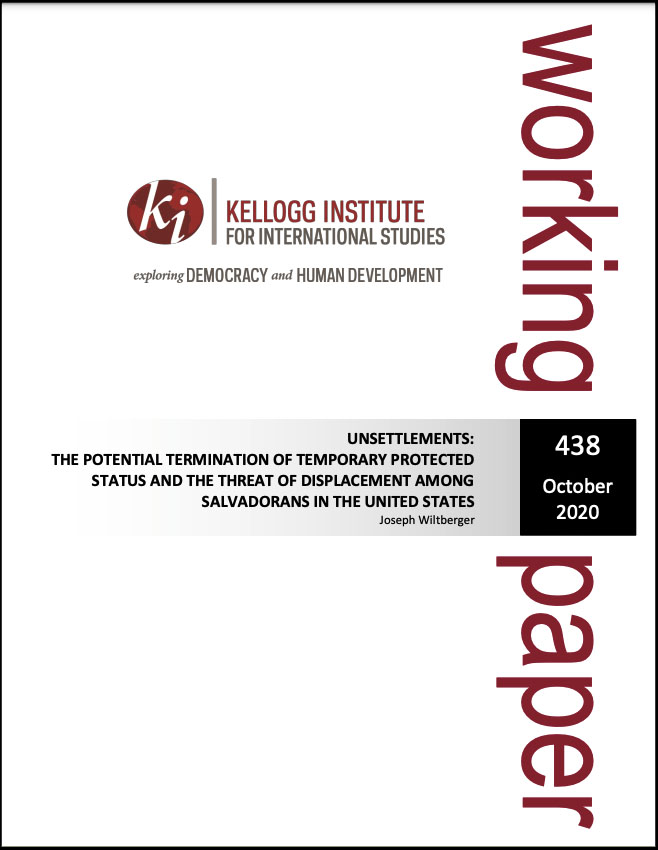Unsettlements: The Potential Termination of Temporary Protected Status and The Threat of Displacement Among Salvadorans in The United States
Author: Joseph Wiltberger
Publication info: Kellogg Institute, October 2020
Full text: Read this paper at kellogg.nd.edu
Abstract
The 2018 decision by the US government to terminate Temporary Protected Status (TPS) for Salvadorans, the largest population of TPS holders, would displace nearly 200,000, many of whom have lived in the United States for decades. TPS, a form of humanitarian relief that provides a broad set of protections for those who have fled disaster and instability in their countries of origin, has been continually reapproved for Salvadorans over many years, making it a liminal legal status that has come to resemble a permanent legal status. This paper examines the unsettling effects of this decision, should it be enforced, for Salvadoran holders of TPS (TPSianos) who have established lives and families in the United States. The decision to abruptly end TPS threatens TPSianos and their family members with forced displacement and extraordinary hardships; the decision also has the potential to send them to live under dangerous conditions in El Salvador. Drawing from ethnographic findings, the paper shows how the decision contradicts the logics and realities of permanency in the United States that have guided TPSianos’ future planning and expectations that they should be allowed to transition to a more permanent legal status. Conceptualizing such disruptions and contradictions wrapped up in the ending of TPS for Salvadorans as an entanglement of unsettlements, this analysis extends scholarship on the political, economic, and legal dynamics surrounding TPS and on the lived experiences of liminal legality.
Recommended citation
Wiltberger, Joseph. Unsettlements: The Potential Termination of Temporary Protected Status and the
Threat of Displacement Among Salvadorans in the United States. Kellogg Working Paper 438. Notre
Dame, IN: Kellogg Institute for International Studies, 2020.
